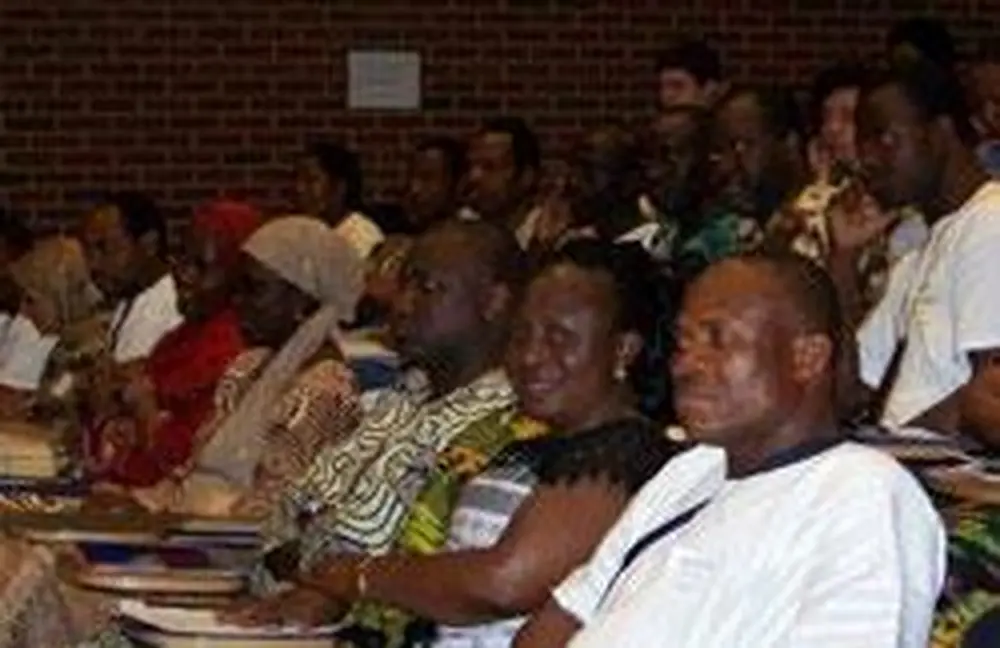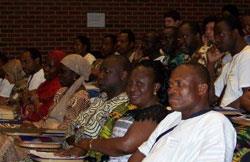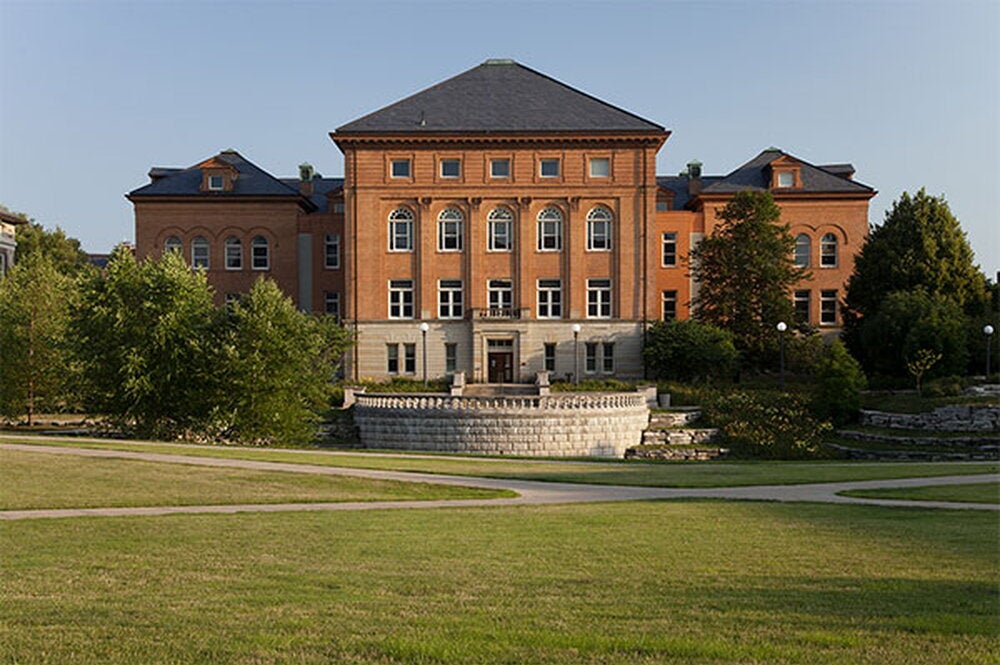

"No one tests the depth of a river with both feet," says an old African proverb.
However, when it came to learning an African language on the University of Illinois campus this summer, students jumped in with both feet. It's called the total immersion teaching method.
Using this approach, students attending the Summer Cooperative African Language Institute (SCALI) were spoken to in the African language from day one, and English was only brought in as a last resort, explains Eyamba Bokamba, an LAS linguistics professor and SCALI director.
"For example, much of the first day might be devoted, more or less, to greetings in the target language," Bokamba says. "African languages are known for greetings. It's not enough to say 'good morning' or 'how are you?' I will inquire about your family, your work, or even about your night's sleep."
Rather than explaining everything in English, the meanings of the words and phrases were clarified using gestures, drawings on the board, or projections on a screen.

It's been estimated that people speak more than 2,000 different languages on the African continent with countless more dialects-a vibrant mix that includes everything from Arabic, Swahili, and Zulu to the ancient "click languages" of South Africa, in which people use clicking sounds in their communication. This summer, nine African languages were offered on the U of I campus as part of SCALI-Akan/Twi, Amharic, Arabic, Bamana, Pulaar, Swahili, Wolof, Yoruba, and Zulu.
At SCALI, students attending from around the country were also immersed in the culture of their target language, watching African movies, reading African recipes in the language and then cooking the food, and going to special "conversation hours," cultural festivals, and research presentations.
For seven straight weeks, students attended language classes on the U of I campus four hours a day, five days a week. It was a crash-course experience that fit an entire academic year in a seven-week period.
This is the first time the U of I has hosted SCALI, which is held at a different institution every two years. It draws students from across the country, and this year it drew the largest enrollment to date-125 students from 30 different colleges and universities. LAS's Center for African Studies sponsored the program in collaboration with the Department of Linguistics.
The U of I makes an ideal host because it features the largest program in African languages in the country, says Bokamba. During the regular academic year, U of I has more than 900 students in African languages and is one of the few universities to offer third, fourth, and fifth years in certain African languages.
"Of the nine languages offered at SCALI, Arabic is the most popular because of the political climate of the day," Bokamba points out. Another popular language is Swahili, regarded as the major sub-Saharan African language. For most Americans, their primary connection to Swahili is the phrase "hakuna matata," the Swahili phrase for "no worries," made famous in the Disney movie The Lion King.
According to Bokamba, a large number of the SCALI students are undergraduates who need to study a language to fulfill a graduation requirement. Others are graduate students in African studies or students from many different fields who need an African language to do research on the continent. Yet others are students of African or Arabic descent who wish to take the language for cultural heritage reasons.
Whatever their reason for coming to U of I, they wind up immersed in the world of Africa, minus the wildlife.
"The advantage of our total immersion approach is that students will remember and assimilate a language better than they do through any other methods, which emphasize grammar and vocabulary learning," Bokamba says. "They are actually able to think through the language."
